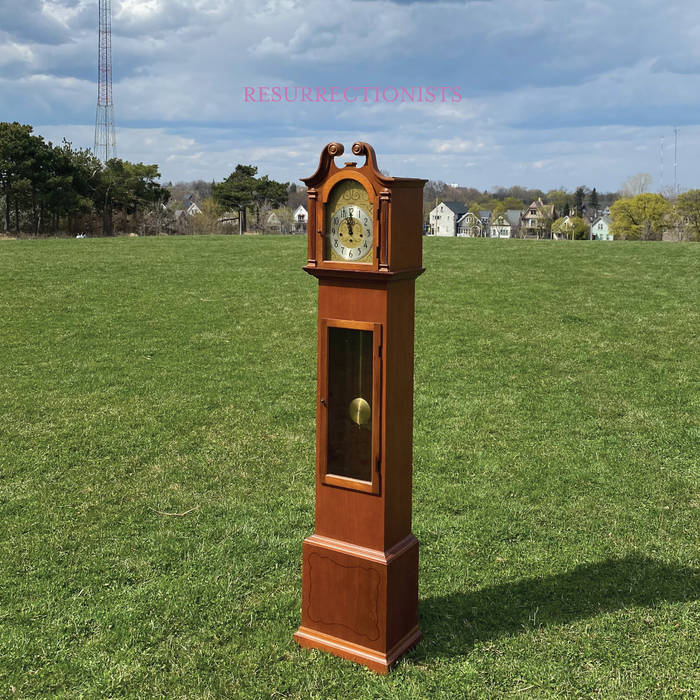Now That We Are All Ghosts is the second album from Milwaukee’s Resurrectionists. The project was self-engineered, recorded, and produced; and was mastered by Bob Weston at Chicago Mastering Service. The album features nine songs of “Doom Chamber-Americana,” all powerfully cinematic and ripe for video treatments, leading the group to take the unusual and ambitious step of commissioning videos for every one of them. Now That We Are All Ghosts, will be released on Seismic Wave Entertainment April 3rd on 12” vinyl LP, CD and Digital formats.

The new album sees a marked change in the band’s direction and stylistic range. Resurrectionists were originally formed by lyricist, guitarist and banjo picker Joe Cannon and bassist Jeff Brueggeman from the locally revered trio WORK with drummer Josh Barto and pedal steel player Gavin Hardy. On the group’s 2019 debut album What Comes In — a collection of everyman trouble tales delivered with dark wit and piquant Midwestern tang — Gavin’s mournful, swelling steel work helped steer songs into Gothic-country territory.
On Now That We Are All Ghosts, Hardy has been replaced by multi-instrumentalist Gian Pogliano. Gian’s penchant for more adventurous, wider-ranging sonic discourse inspires Resurrectionists to branch out into unexpected stylistic experimentation. The material here is informed equally by the meticulous melodic abstractions of proto-punk icons Television as the Old Weird American sounds of Dock Boggs and Bascom Lamar Lunsford.
Joe’s lyrics on Now That We Are All Ghosts are both primal and poetic and he sings the hell out of them with a tent preacher’s conviction and a working-class punk’s urgency. Lines that seem to squarely address experiences of the COVID-19 pandemic were actually influenced by reading Thomas Mann’s Death in Venice and The Magic Mountain pre-2020, married to strange ruminations concerning Walt Whitman’s death mask.
It all adds up to a collection of life-or-death songs that are incredibly haunting, daunting, and visceral. Premiering exclusively is the video for the album opener “A Classic Dictionary of the Vulgar Tongue,” beginning with slow, plaintive banjo and ending with a fateful howl and shrieking banjo feedback, artfully crafted to the nature of the lyrics.

